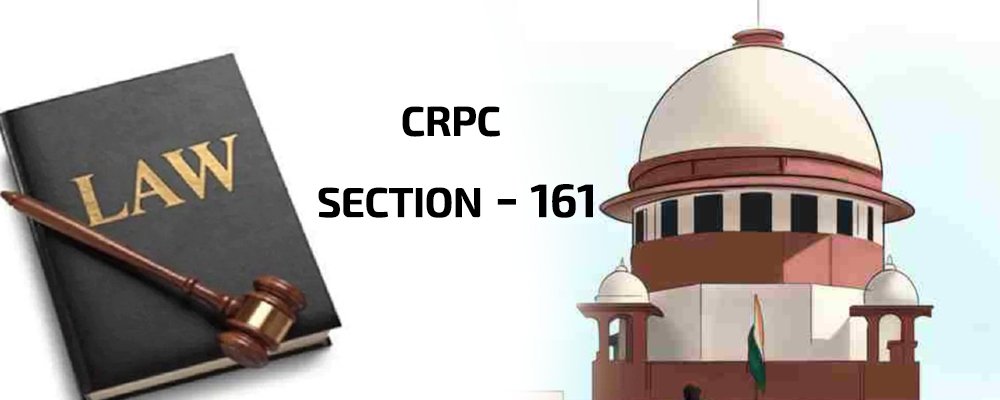Introduction
In the realm of criminal law, the charge stage is a critical juncture where the court decides whether to proceed with a trial based on the evidence presented. A key element that often comes under scrutiny at this stage is the consistency of statements made by witnesses, particularly the complainant. Contradictions between statements recorded under Sections 161 (police statement) and 164 (judicial statement) of the Code of Criminal Procedure (CrPC) can significantly impact the court’s decision on whether to frame charges or discharge the accused. This article delves into the implications of such contradictions, with a focus on accident cases, and examines the guiding principles established by the Supreme Court of India, including the pivotal case of Sunil Kumar vs. State of Madhya Pradesh, (1997) 1 SCC 310.
Understanding Sections 161 and 164 CrPC
Section 161 CrPC: Police Statements
Statements recorded under Section 161 CrPC are made during the police investigation. These statements are not under oath and are used to gather initial information about the crime. They are not substantive evidence but can be used to corroborate or contradict witnesses during the trial.
Section 164 CrPC: Judicial Statements
Statements under Section 164 CrPC are recorded by a magistrate and are given more weight since they are made under oath and in a judicial environment. These statements are intended to be more reliable as they involve the direct involvement of the judiciary.
Contradictions and Their Legal Impact
When there are discrepancies between a witness’s statements under Sections 161 and 164, the credibility of the witness can be called into question. In accident cases, where the identification of the accused or the sequence of events is crucial, such contradictions can potentially lead to the discharge of the accused if they are significant enough to undermine the prosecution’s case.
Legal Framework at the Charge Stage
Prima Facie Case: The Standard of Proof
At the charge stage, the court is primarily concerned with whether there is a prima facie case against the accused. This means the court assesses if the evidence, on the face of it, suggests the commission of an offense by the accused. The court does not engage in a detailed evaluation of the evidence or decide on the guilt of the accused at this point.
Material Contradictions vs. Minor Discrepancies
Material Contradictions:
These are contradictions that affect the core aspects of the prosecution’s case, such as who committed the offense or how the offense was carried out. Material contradictions can lead to the discharge of the accused as they undermine the foundational elements of the case.
Minor Discrepancies:
Minor contradictions that do not affect the overall credibility of the witness or the main narrative of the prosecution’s case are usually overlooked at the charge stage. The rationale is that such minor inconsistencies are common and do not necessarily indicate that the witness is unreliable.

Case Analysis: Sunil Kumar vs. State of Madhya Pradesh, (1997) 1 SCC 310
Facts of the Case
Sunil Kumar was accused of causing a road accident that resulted in the death of a pedestrian. He was charged under Sections 279, 337, 338, and 304A of the IPC. The prosecution’s case relied heavily on the statements of the complainant and eyewitnesses, recorded under Sections 161 and 164 CrPC. However, there were significant contradictions between these statements regarding the identity of the driver and the circumstances of the accident.
Legal Issues
The primary issue before the court was whether the contradictions between the complainant’s statements under Sections 161 and 164 CrPC were substantial enough to discharge the accused. The defense argued that these contradictions affected the identification of the accused as the driver, which was a critical aspect of the case.
Court’s Observations and Judgment
The Supreme Court emphasized that at the charge stage, the court must only determine if there is a prima facie case to proceed. However, the Court also highlighted that if contradictions are blatant and undermine the reliability of the evidence on which the prosecution is based, the accused may be discharged.
In Sunil Kumar’s case, the Court found the contradictions between the statements to be material. They directly impacted the identification of the accused and the description of the accident. As these contradictions went to the root of the prosecution’s case, the Court upheld the discharge of the accused, ruling that the evidence was insufficient to frame charges.
Implications for Accident Cases
Accident cases often hinge on eyewitness testimony and the complainant’s account of events. Contradictions in these statements can be particularly damaging when they relate to:
- Identification of the Accused: If there is a discrepancy about who was driving the vehicle at the time of the accident, it can cast serious doubt on the prosecution’s case.
- Description of the Incident: Variations in the sequence of events, such as how the accident occurred or what actions the accused took, can weaken the reliability of the evidence.
Guidance for Legal Practitioners
- Focus on Materiality: When dealing with contradictions in statements, it is crucial to identify which discrepancies are material to the case. Material contradictions that affect key aspects of the case can form the basis for arguing for discharge.
- Prepare for Detailed Arguments: While the court does not conduct a meticulous examination at the charge stage, presenting well-reasoned arguments that highlight how contradictions affect the core of the prosecution’s case can be persuasive.
- Use of Case Law: Citing relevant judgments, such as Sunil Kumar vs. State of Madhya Pradesh, can strengthen the argument for discharge based on contradictions. It is essential to demonstrate that the contradictions are not just minor inconsistencies but affect the foundation of the case.
Important Note:
While contradictions in statements can be significant, not all discrepancies will lead to discharge. Courts look for material contradictions that impact the prima facie case against the accused. Minor inconsistencies are often deemed insufficient to derail the framing of charges.
Conclusion
Contradictions between statements under Sections 161 and 164 CrPC play a critical role in the decision-making process at the charge stage in criminal cases, especially accidents. The principles laid down in Sunil Kumar vs. State of Madhya Pradesh guide the courts in assessing whether such contradictions warrant the discharge of the accused. Legal practitioners must carefully analyze the materiality of contradictions and prepare to argue how these discrepancies affect the overall credibility and strength of the prosecution’s case.
Author : Advocate Vinod Kumar, Delhi High Court
Founder : LegalMate Law Firm
Contact No : 8934042222
